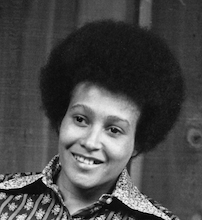A Quote by Stephanie Coontz
We need to push for work-family practices and policies that allow individuals to customize their work lives according to their changing individual preferences and family obligations, not just their traditional gender roles.
Related Quotes
All of us were born at some point, and at some point, unfortunately, most people get sick or need to care for a loved one who is sick. I mean, that's just acknowledging the reality of how we have to have labor market policies that allow people to have families, which is why we work in the first place. We have to have policies that allow us to be able to focus on our jobs and be highly productive employees. You need to be able to have policies that allow us to adjudicate between those two.
When I speak on work-family issues to audiences around the country, some of the biggest complaints I hear come from individuals who are described by the census as living in 'non-family households.' They resent the fact that their family responsibilities literally don't 'count,' either for society or for their employers.
In ascending order the qualities of Patriotism are: 1. To work, fight, or die for your own survival. 2. To work, fight, or die for your immediate family. 3. To work, fight, or die for a group, extended family, tribe, or clan. 4. To work, fight, or die for a group too large for all the individuals to know each other. 5. To work, fight, or die for a way of life.
I am deeply immersed in my medical work, and it can get very intense, but I believe that the connection and devotion is key. You can not work on diseases as devastating and deadly as Lassa and Ebola without complete trust and respect for the individuals with whom you work. My lab and colleagues are just extraordinary, and we are a family.
I told my kids, 'It doesn't matter if this person or that person in the family isn't perfect; this is what you've got. We have to work with that, and if you can't work with that, then you're just jumping into someone else's family, and there's always going to be something missing if you don't work that out.'
Children live in the only successful Marxist state ever created: the family. 'From each according to his ability, to each according to his need' is the family's practice as well as its theory. Even with today's scattershot patterns of marriage and parenting, a family is collectivist to a more than North Korean degree.

































